SHS Grad Travels the World to Make A Difference
- Tuesday, 06 October 2015 14:50
- Last Updated: Thursday, 08 October 2015 07:59
- Published: Tuesday, 06 October 2015 14:50
- Joanne Wallenstein
- Hits: 7753
Brodsky with staff members from Rwanda Biomedical Center after they completed a two week training in GIS mapping in Gisenyi, Rwanda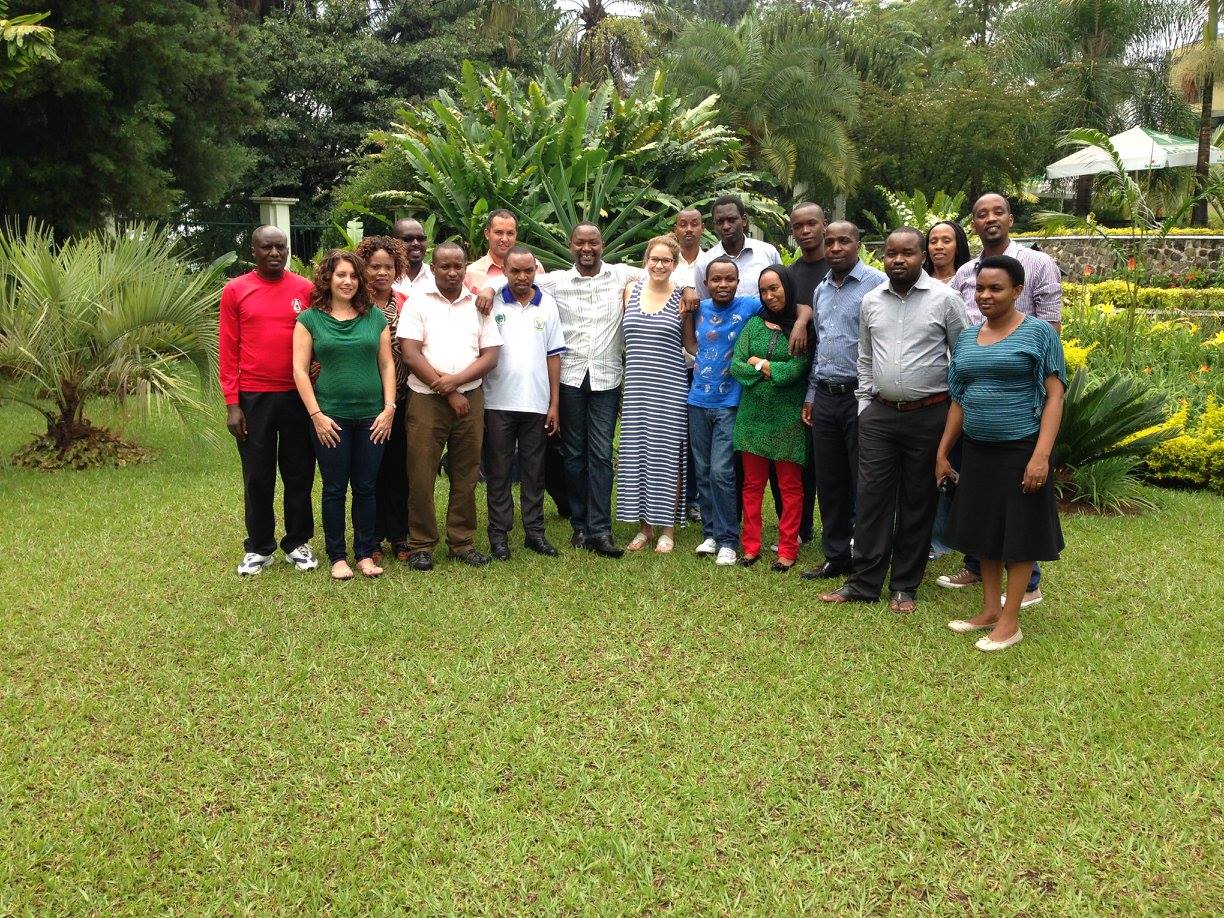
Tell us about your background. When did you graduate from high school, where did you go to college and graduate school --and what did you study? I graduated from Scarsdale High School in 2007. I went to Colgate University in Hamilton, NY where I majored in political science and minored in African Studies. I graduated from Colgate in 2011 and immediately went to get an M.A. from Fordham University in International Political Economy and Development with a concentration in International Development Studies. Since graduating from Fordham I have worked at Palladium in Washington DC.
visiting a drop in health clinic for female sex workers in a slum in Addis Ababa, Ethiopia. The clinic provides health care, showers, food, and shelter for these women and also helps them with referrals to specialized health centers for other issues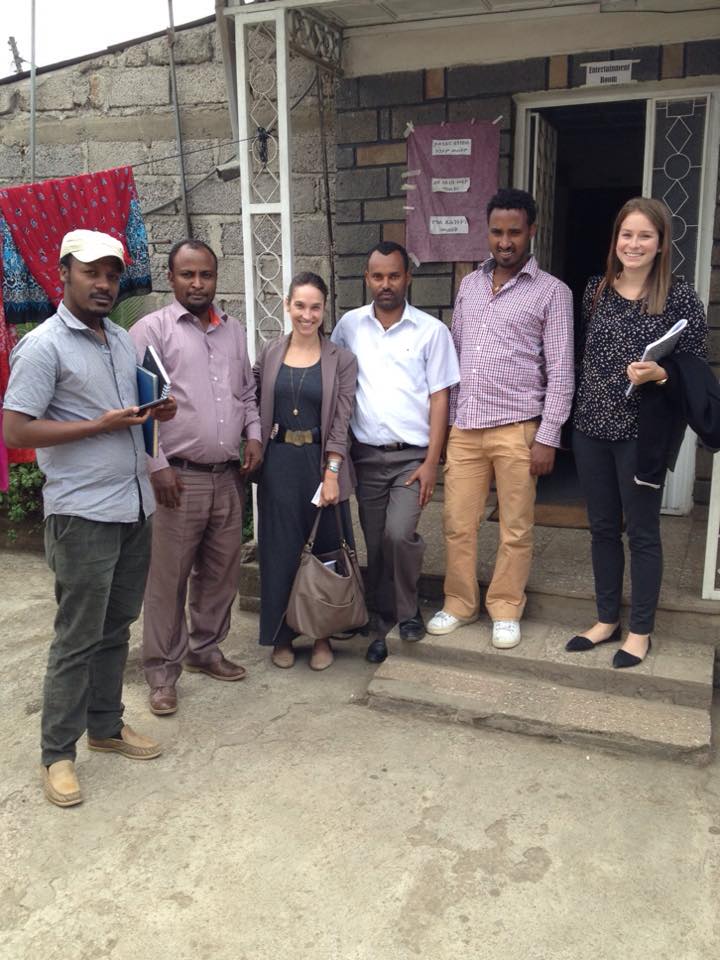
Explain the mission of Palladium and what you do there. Palladium is a consulting firm with a large focus on international development. Its mission is to deliver innovative solutions that create a positive impact and improve the quality of people's lives around the world. Most of Palladium's work is in the form of contracts with donor organizations such as USAID. I am a Data Use Advisor and work mainly on a USAID-funded project called MEASURE Evaluation, which helps to strengthen countries' health information systems. My work focuses on helping ministries of health, national AIDS programs, and other government entities to better collect, analyze, interpret, and use their health data to improve evidence-based decision making. Often times decisions are made arbitrarily without data to back them up. It's important to build the capacity of decision makers to use data to make decisions.
Visiting the Kigali Memorial Center commemorating the 1994 Rwandan Genocide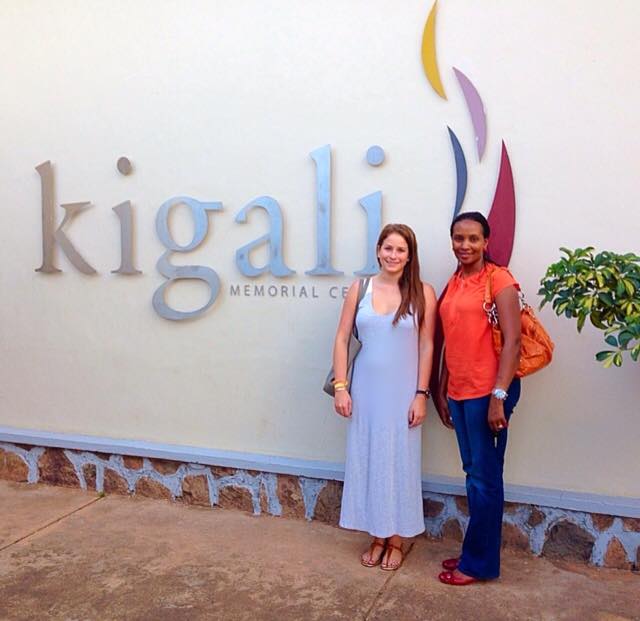
What do you do when you visit these countries? Many of the trips I do are to facilitate and participate in workshops or trainings. My most recent trip was in Tanzania, where we were pilot testing a one week curriculum that we developed on a software system called District Health Information Systems (DHIS2), which enables countries to collect all of their data electronically and manage, analyze, interpret, and visualize it within the software. We want to encourage people that using data is a critical part of their jobs, and also that there are user friendly tools out there to help them to do so. On many of the trips that I go on we also train people on GIS mapping software. Geographic targeting is becoming increasingly important, particularly in HIV, as the disease does not affect populations uniformly and funding is waning. Understanding where people are most affected by HIV can allow decision makers to be more targeted with where they allocate resources, plan programs, etc. We have been training staff on how to make maps of the distribution of HIV with software and also how to analyze these maps and use them in decision making and planning.
What are some of the things that surprised you At the border checkpoint between Rwanda and Democratic Republic of Congo 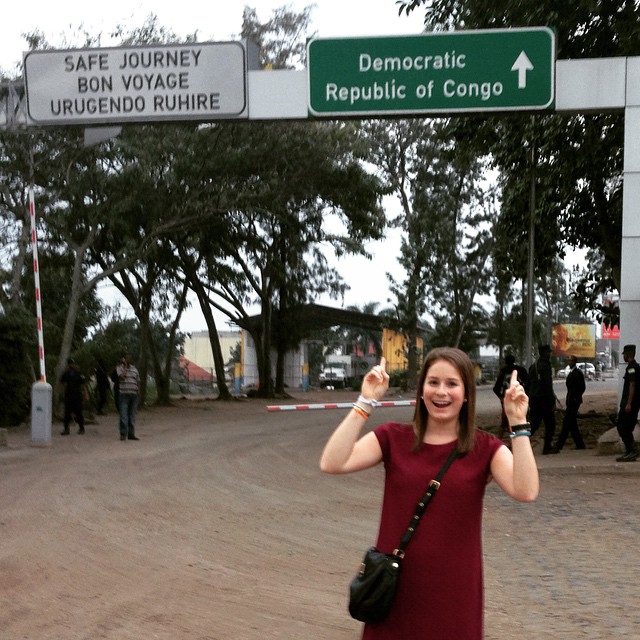
What are some common misconceptions Americans have about world health issues? That's a tough question. I think that people tend to focus on what's in the news and forget about world health issues quickly. For example, for months everyone was very focused on Ebola (rightly so) but also was misinformed about the disease and then quickly forgot about it. At the same time, there is little knowledge about many other pervasive health issues occurring around the world that don't get the same type of attention. Maybe if these issues were better known and understood there could be more support and funding for them.
Three mountain gorillas (including a baby!) in Volcanoes National Park, Rwanda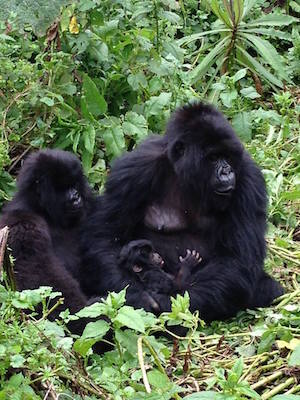
Is the work even more challenging because you are female? I think it is more challenging because I am young than because I am female. I think that it can at times be more difficult to be taken seriously because people may question by age and my knowledge and experience; however, I think I have also been able to use it to my advantage in difficult situations. Sometimes people are more willing to work with you and negotiate with you when they underestimate you or don't find you to be too intimidating.
Where do you see yourself going with this in the future? I hope to continue in this field and to ultimately develop an expertise in a disease area. One of my main interests that I hope to grow more professionally in is malaria and neglected tropical diseases. Ultimately I see myself becoming an expert in my field of choice and continuing to work with governments, people, and countries to improve health and livelihoods. Sometimes I think I will go back to school and get a PhD, but I'll just have to wait and see!
Any advice to students who may wish to pursue a similar career path? One of the most valuable things to have is field experience in a developing country. I suggest students seize opportunities to travel and work on the ground. It gives you a completely different perspective on this type of work and ultimately is very appealing to future employers. My other piece of advice is to find organizations that truly interest you and try to get a foot in the door at them however you can. I started off at my company in an administrative position and was able to advance to a more technical role. International development and global health are difficult fields to break into but once you do you will find a community of some of the smartest people you will ever meet and work with.















